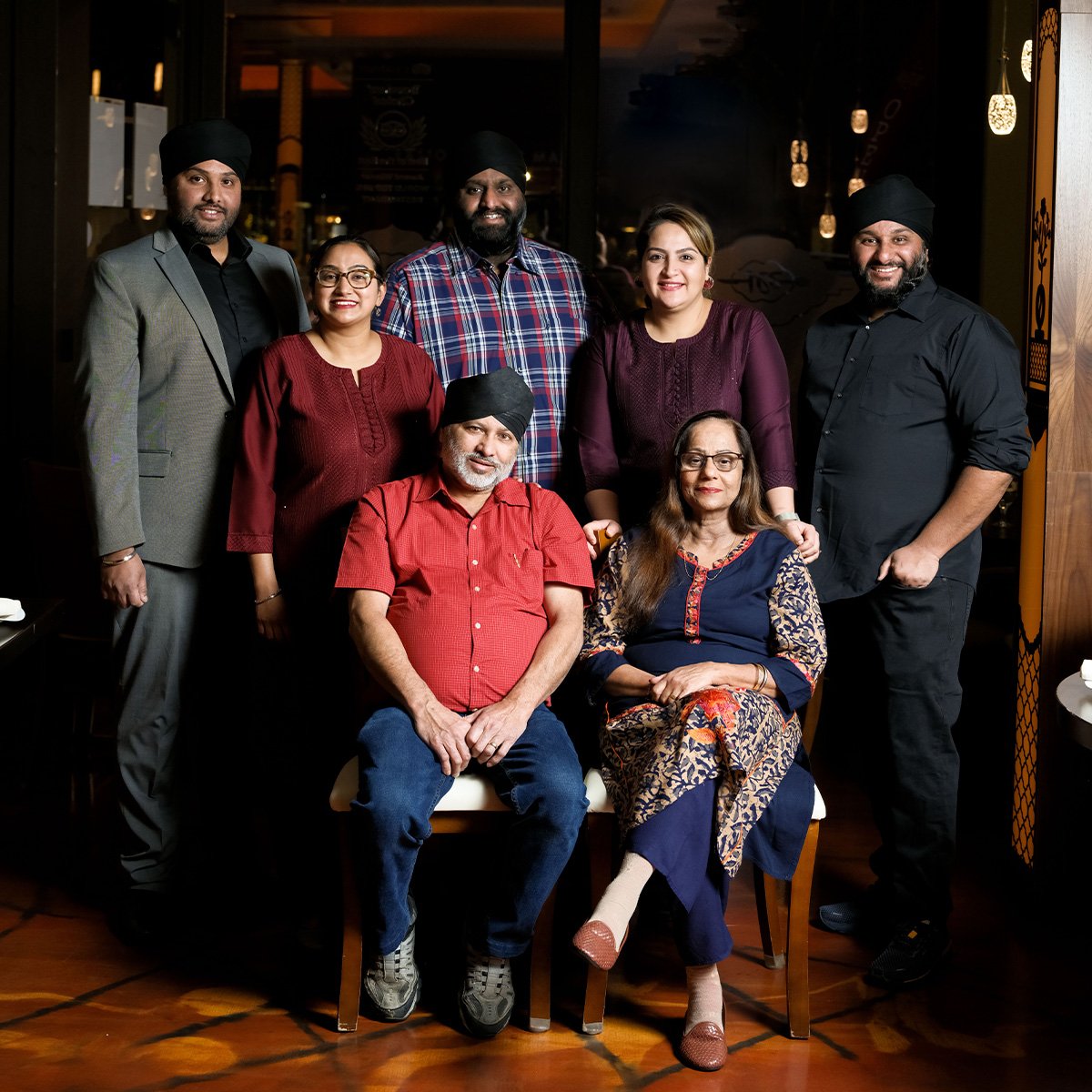
Patrons drive two hours from Manhattan to dine at Easton's Aman's Artisan Indian Cuisine. California parents of Lafayette College students make reservations here a year in advance to ensure a table the next time they're in town. Add an OpenTable Diners' Choice award every year since 2019 and Tripadvisor's “Best of the Best World Top 10% Restaurant” awards in 2020 and 2022, and it's pretty clear Aman's has a following.
For good reason.
The Bansal family followed a vision and passion for food from their previous venture, Aman's Indian Bistro, to Easton's city center in 2019 when they launched this BYOB. They wanted to build a restaurant that “elevates the experience of Indian cuisine,” says Jasmeet Bansal, kitchen manager, chef and marketing lead—a restaurant offering an experience that rivals those found in world-class cities.
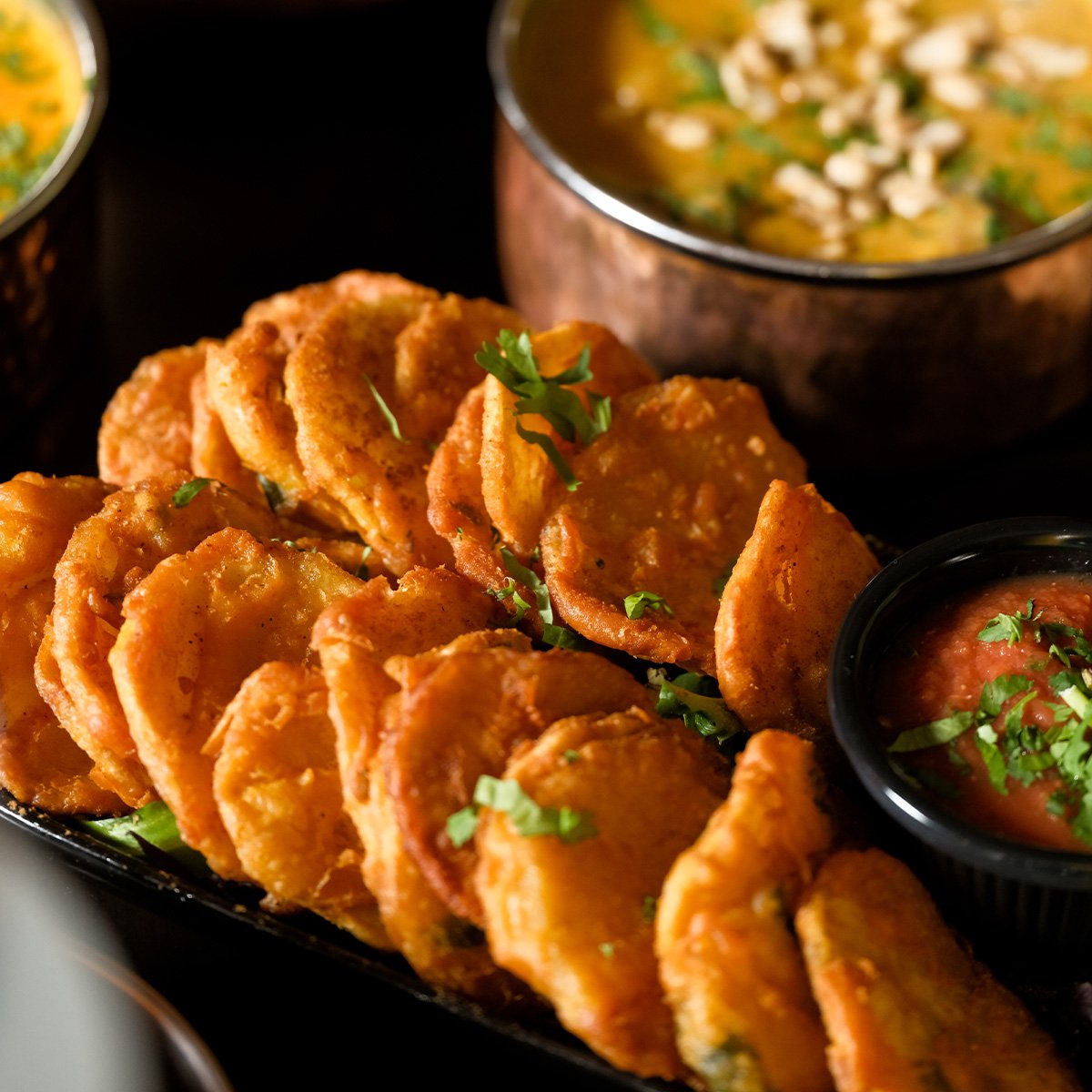
For Aman's, that starts with serving the best food possible—its foundation based in “fresh-batch cooking,” as CEO Baljeet Bansal puts it, or cooking food from scratch when it's ordered. Because Aman's food is “all about flavor,” says Sukhjeet Bansal, front-end operations manager, maximizing flavor goes hand in hand with the freshly cooked fare.
To that end, spices— cumin, coriander, cinnamon and cardamom, to name just a few—are roasted and ground fresh in house; Aman's garam masala is blended on the premises. There's no food coloring or artificial ingredients, and meat and vegetables are cut in the restaurant's kitchen. Freshness is key.
“What we are really proud of is the authenticity of the food,” says Baljeet. “We pride ourselves on making everything in house.” The commitment to freshly made food is a critical part of Aman's identity, reflected in the “artisan” portion of the restaurant's name.
Dining here is a journey of delights. The menu offers North Indian Punjabi cuisine based on generational family recipes. There are curries and kormas and tikkas along with tandoori dishes. Baljeet points out that Indian food is about bold flavor, not spicy heat; all dishes can be ordered according to heat preference.
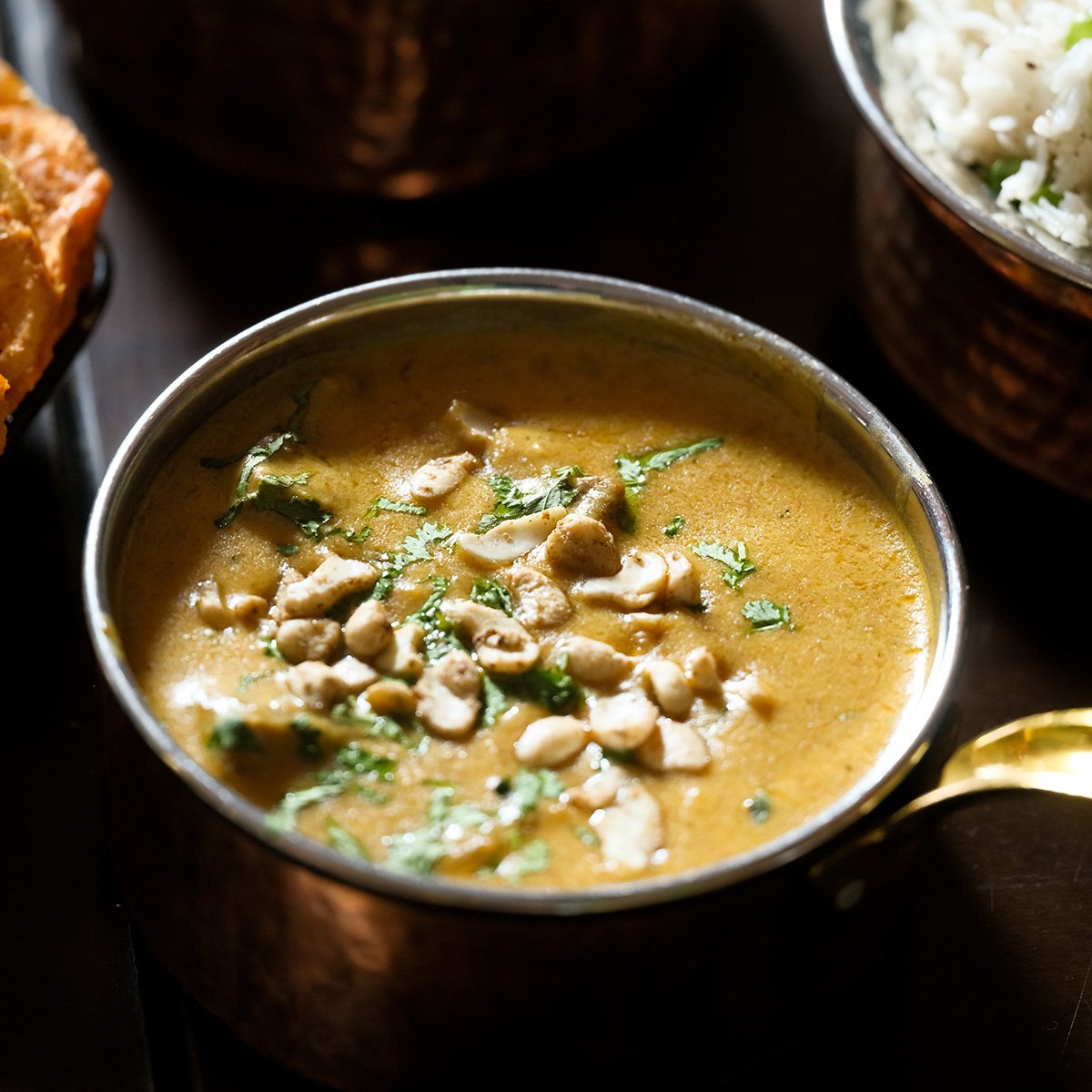
More than a dozen vegetarian offerings feature paneer, chickpeas, lentils and vegan mock meats. Vegetarian dishes are cooked separately in the kitchen, using differentiated oils, fryers, ladles and baking ovens. Because the family lived in the Indian diaspora in Kenya—their grandparents were brought to Kenya by British colonialists to help build the infrastructure there—some dishes feature African influence.
The starter maru bhajia is one of those: slices of potatoes in garbanzo and cilantro batter are fried to crisp outside yet tender inside. Fresh tomato chutney brightens the earthy chickpea essence.
Cauliflower fritters (lasuni sweet gobi), sautéed in sweet garlic glaze, are crunchy around the edges, bringing lovely textural counterpoint to the toothsome vegetable inside. Sticky-sweet sauce adds warmth that lingers on the palate with pleasant mellow zing.
Deep golden onion sauce brings exciting flavor to lamb korma, topped with cashews and raisins, bold but not spicy hot. Boneless chunks of chicken stewed in the restaurant's signature butter tomato sauce melt in the mouth; what a delectable rendition of ubiquitous butter chicken.
Mattar pulao, dry-spiced basmati rice sautéed with garden peas, is lovingly seasoned with cinnamon and cloves. Excellent on its own as a study in flavor subtlety, it's also a fine base for absorbing sauces as accompaniment to dishes such as butter chicken.
Dad's Mishkaki, an Indo- Kenyan delicacy, serves up boneless chicken pieces marinated in a special blend of spices, hot and sizzling from the tandoor. Spicy with medium heat, intense flavor infuses every bite of the moist, tender chicken.
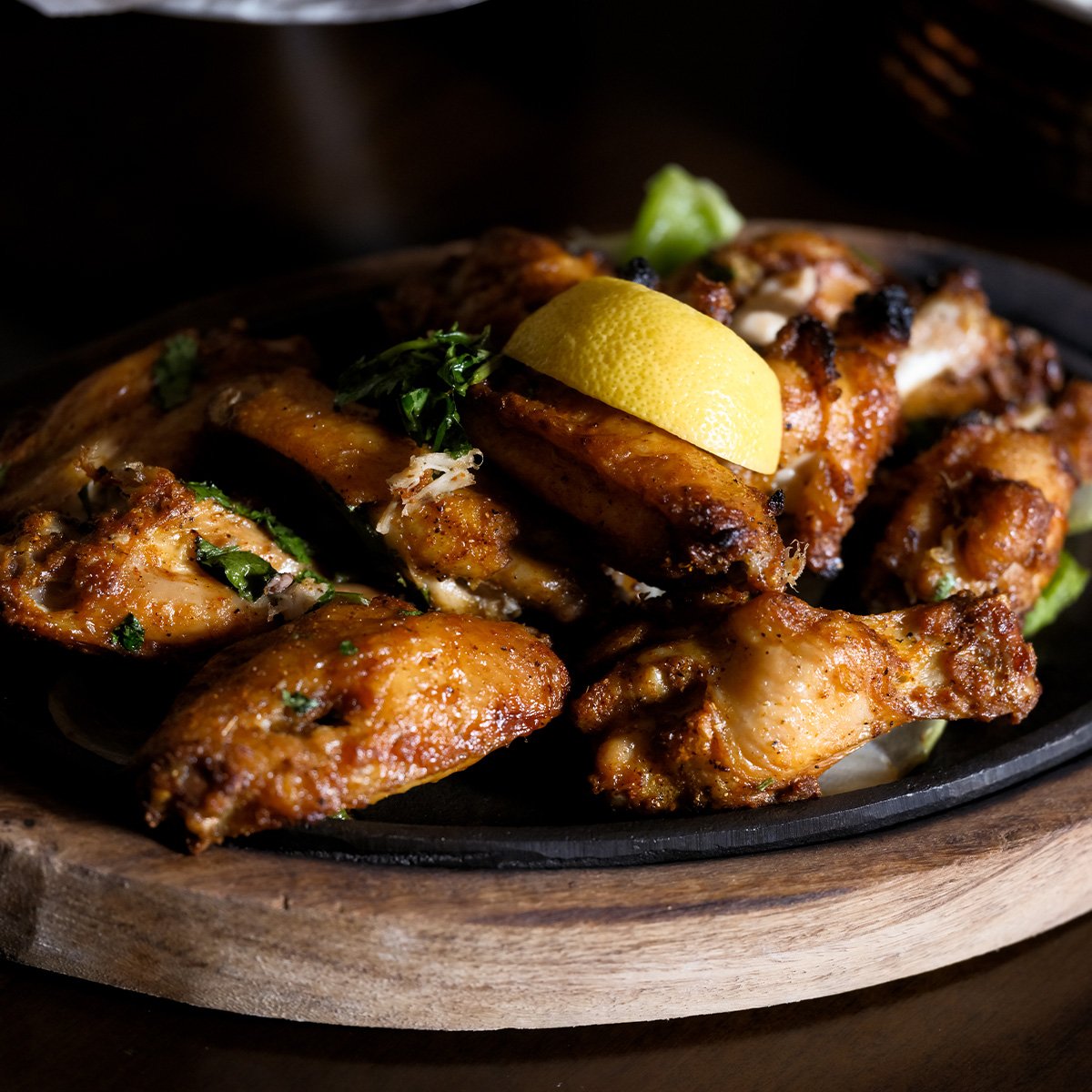
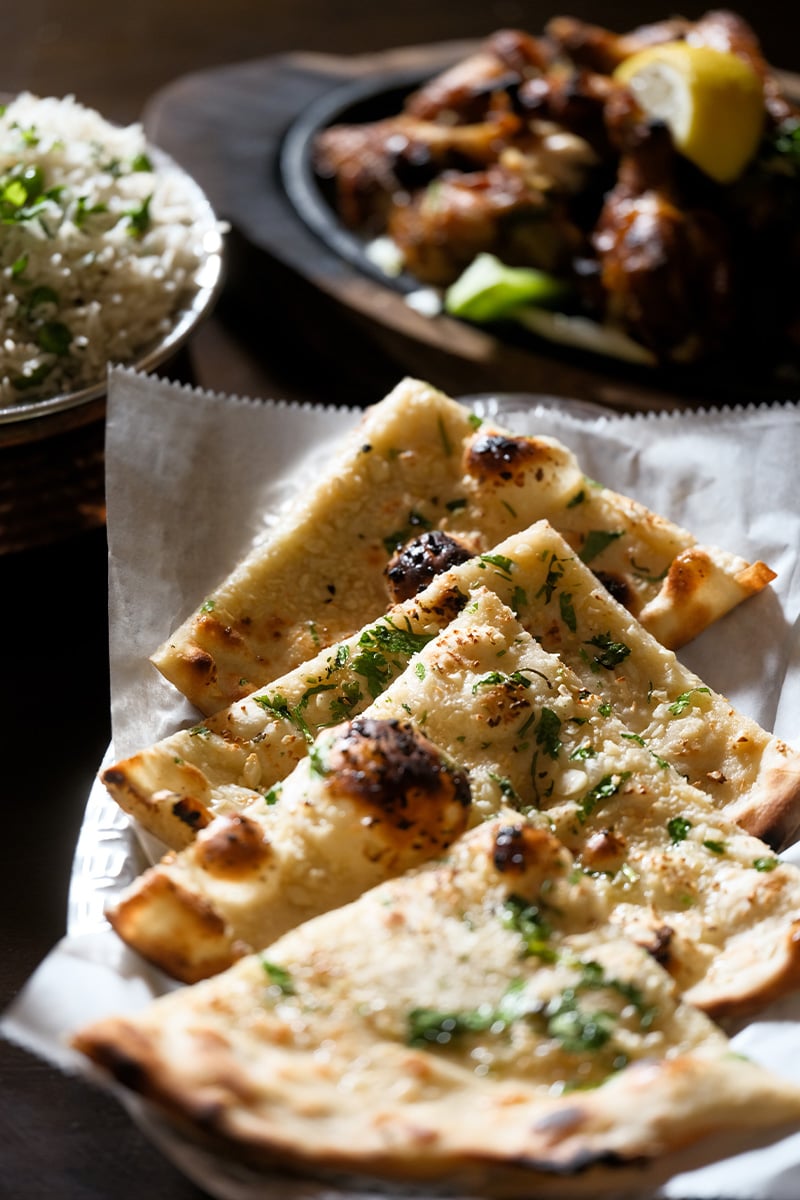
Clay-oven-baked garlic naan, dusted with coriander, is earthy and chewy, heady with the aroma of roasted garlic. Mango lassi, that simple combination of fresh mango pulp and yogurt, refreshes a meal's full flavors with sweet tart counterpoint.
A perfect finale, the house special orange kulfi features the pulp, zest and juice of fresh oranges in hand-churned ice cream, frozen in the orange rinds. Additional interesting ice cream flavors demand a return visit: carrot cardamom, ginger gulab jamun and pineapple pepper.
Recognizing that elevating the experience of Indian food requires more than just stellar fare, the Bansal family sought to create upscale ambience at Aman's—since they've not found many Indian restaurants that fit this category. To meet that goal, they planned the décor's theme with intention to reflect the name: “Aman” in Punjabi means “the light of peace.”
Elements of nature form the foundational design, which seeks to calm the soul, says Sukhjeet. One wall features 3D acrylic tiles mimicking waves flowing across the surface like water. Walnut panels throughout the restaurant, cut from the same piece of wood, establish symmetry and consistency of pattern. Finally, wallpaper in soft mint green calls up the color of grass and forests.
To bring their culture into the dining experience, elements of the décor show the influence of Sikh art and the architecture of the Golden Temple in Amritsar, the holiest shrine in Punjab. These include Indian-style arches in the restaurant's windows and a “meenakari” pattern (a technique like enameling metal), designed by Jasmeet, on lighted interior columns.
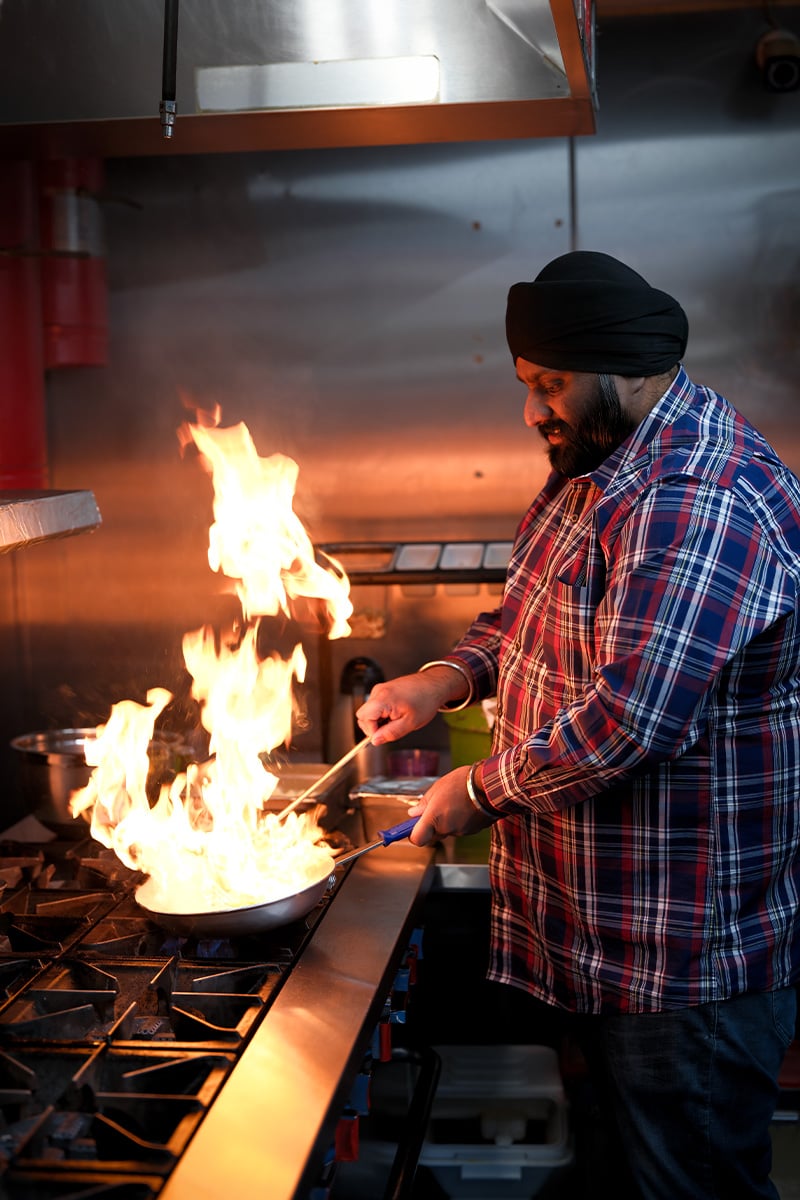
The food and ambience have certainly succeeded in elevating Aman's dining experience, but it's the story behind the food and ambience that really sets this restaurant apart. Yes, the family is driven by passion for food, but there is an equally fervent passion for hospitality—and both are grounded in and guided by deeply held values.
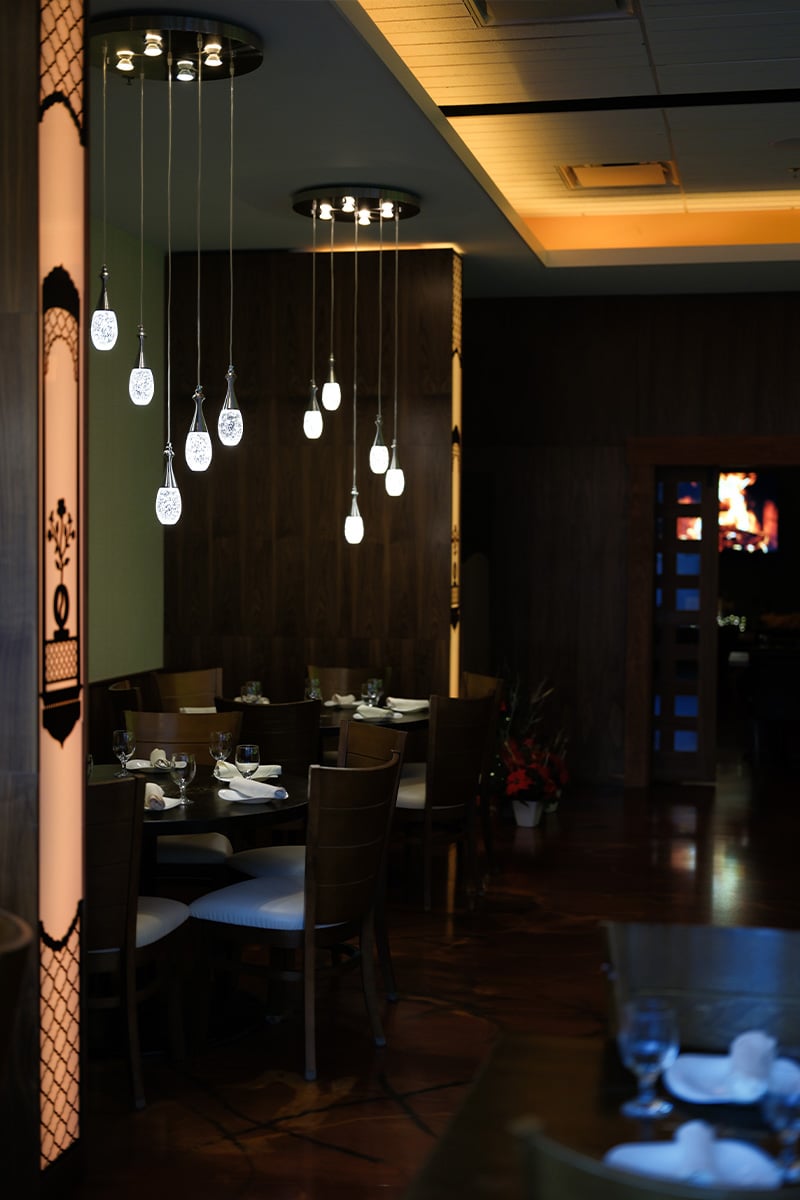
Aman's brings new meaning to “family restaurant.” Usually indicating a child-friendly establishment, this restaurant expands that definition exponentially. Here the family is the restaurant.
Three brothers, along with their parents and their wives, operate Aman's. Baljeet was a senior IT business systems analyst at PPL Electric Utilities for 17 years. Sukhjeet is an architect and interior designer, and Jasmeet is a filmmaker. Each contributes their previous professional skill and training to Aman's operation.
The family matriarch grinds spices and makes appetizers; the patriarch specializes in barbecue dishes. Baljeet's wife (an interior designer) is a front-end manager who also develops recipes and desserts. Sukhjeet's wife (a 3D animator) expedites in the kitchen, manages human resources, and develops recipes and desserts.
Not only does this family work together, they live together, too (yes, all of them), which was convenient as they planned the décor. Decorating choices—like wallpaper and curtains, wall panels and flooring—were voted on by the brothers and their wives, and the majority always ruled.
Aman's family values extend to patrons and staff. “When you walk in the door you are family,” says Amandeep Bansal, Baljeet's wife. “We stop at every table,” she says; “We ask, ‘Did you enjoy your meal? If not, what can we do to fix it?'”
A 20 percent service charge on final bills ensures that Aman's wait staff gets paid a living wage, and the restaurant closes at 9:30 p.m. because most of the staff have families.
These family values no doubt take root in the Bansals' devotion to the Sikh faith, which guides their lives and their work, says Baljeet. One of the Sikh tenets—to share with everyone—is Aman's inspiration for giving back to the community.
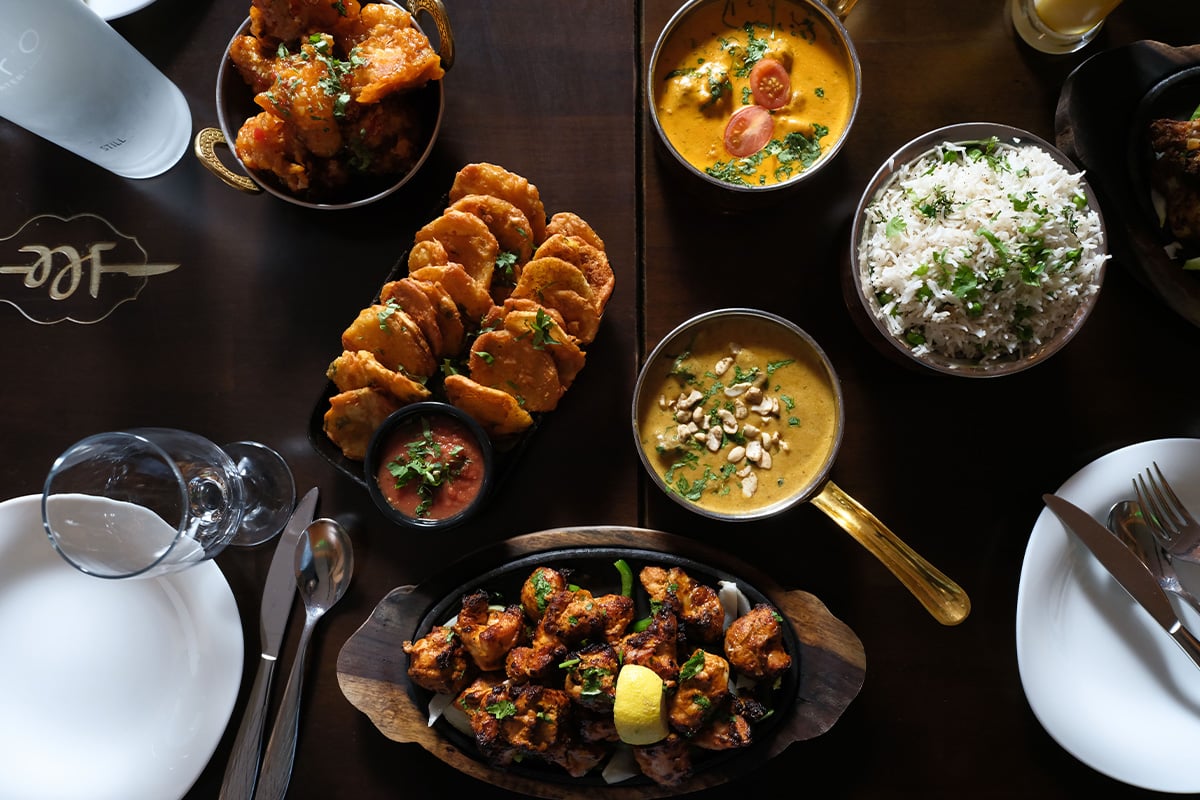
During the first part of the pandemic, which hit six months after Aman's opened, the restaurant became a food pantry that delivered 2,000- plus dry-goods packages to families in need in the Greater Lehigh Valley. Through continuing partnerships with organizations such as Second Harvest and others, the restaurant has donated 5,000- plus meals to fight hunger in the region.
“We have seen food insecurity,” Sukhjeet says. When his family lived in Kenya, there were times the parents had no food, but the children always ate. “We know the value of food and what a hot meal is.”
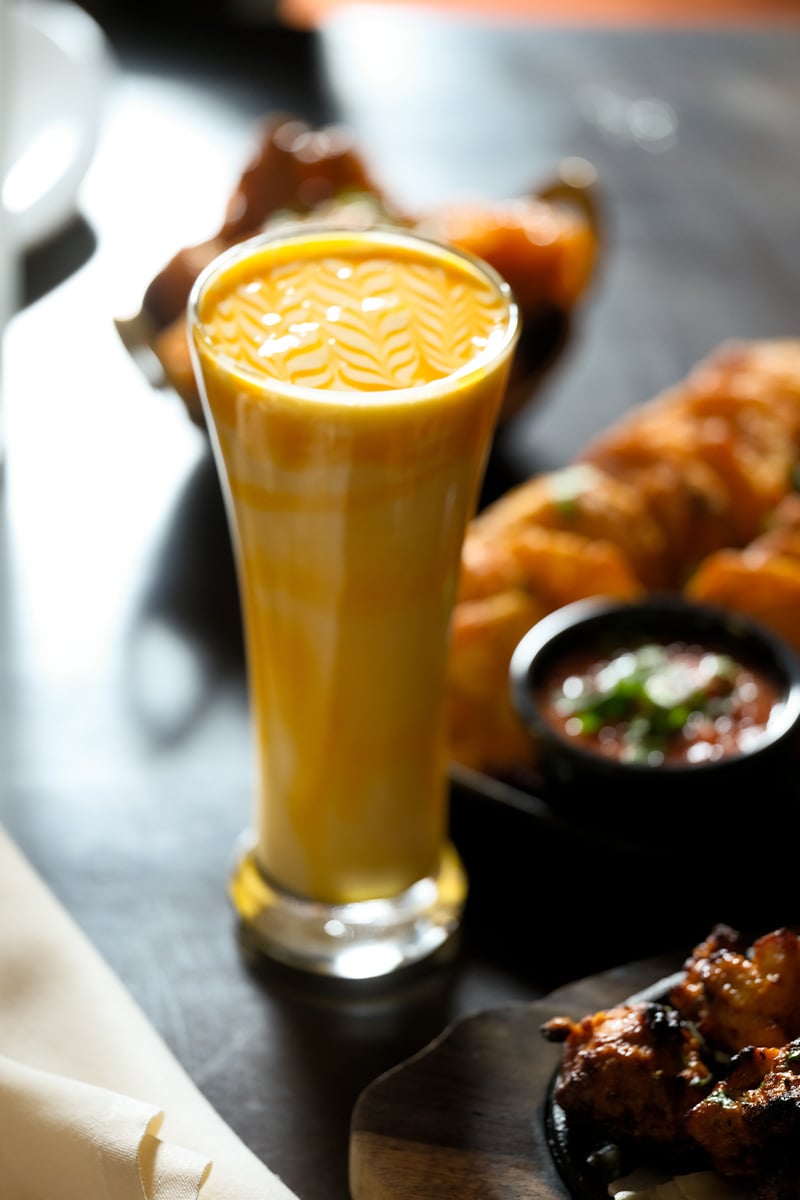
When everyone in the family got COVID simultaneously in February 2021, the restaurant was shuttered for three weeks. “I thought when we had to close, it was over,” says Baljeet, who feared the loss of the life savings invested in the restaurant.
What they learned, though, was that they got back all that they had shared. While they were sick, people messaged them on Facebook: “Can we give you food, bring you food?”
“We received a lot of love; the love came through so strong,” Amandeep says, “so we knew what we are doing is right.” When they reopened, “People came back in droves,” she says, “and that cemented in us” the drive to come back full force.
Could it be, that along with the pungent, aromatic spices that infuse the fare, there's something else that flavors Aman's success?
Amandeep remembers a customer who once said the restaurant's food is “like a warm hug from the inside.” Perhaps that's because, as she describes it, “The food is seasoned with love.”
Aman's Artisan Indian Cuisine
336 Northampton St., Easton | 484.298.0400 | amanseaston.com
Hours
Tues.–Thurs.: 4–9 p.m.
Fri.: 4–9:30 p.m.
Sat.: noon–9:30 p.m.
Sun.: 2:30–8:30 p.m.
Closed Monday
Cost:
Starters $11–$16
Mains $18–$34
Parking: Easton's Fourth Street Parking Garage is only a three-minute walk from Aman's; metered on-street parking also available.
Reservations: Reservations recommended, especially on weekends.
What to Order:
Don't miss lasuni sweet gobi; cauliflower may have never tasted so good. Mattar pulao is complex in composition, yet so simple in its final singular flavor. Taste the texture addition of cashews and raisins to deeply flavored lamb korma. And treat yourself to orange kulfi, as refreshing as fresh-squeezed juice on a summer morning.
Published as “Inside Dish” in the February 2024 edition of Lehigh Valley Style magazine.














